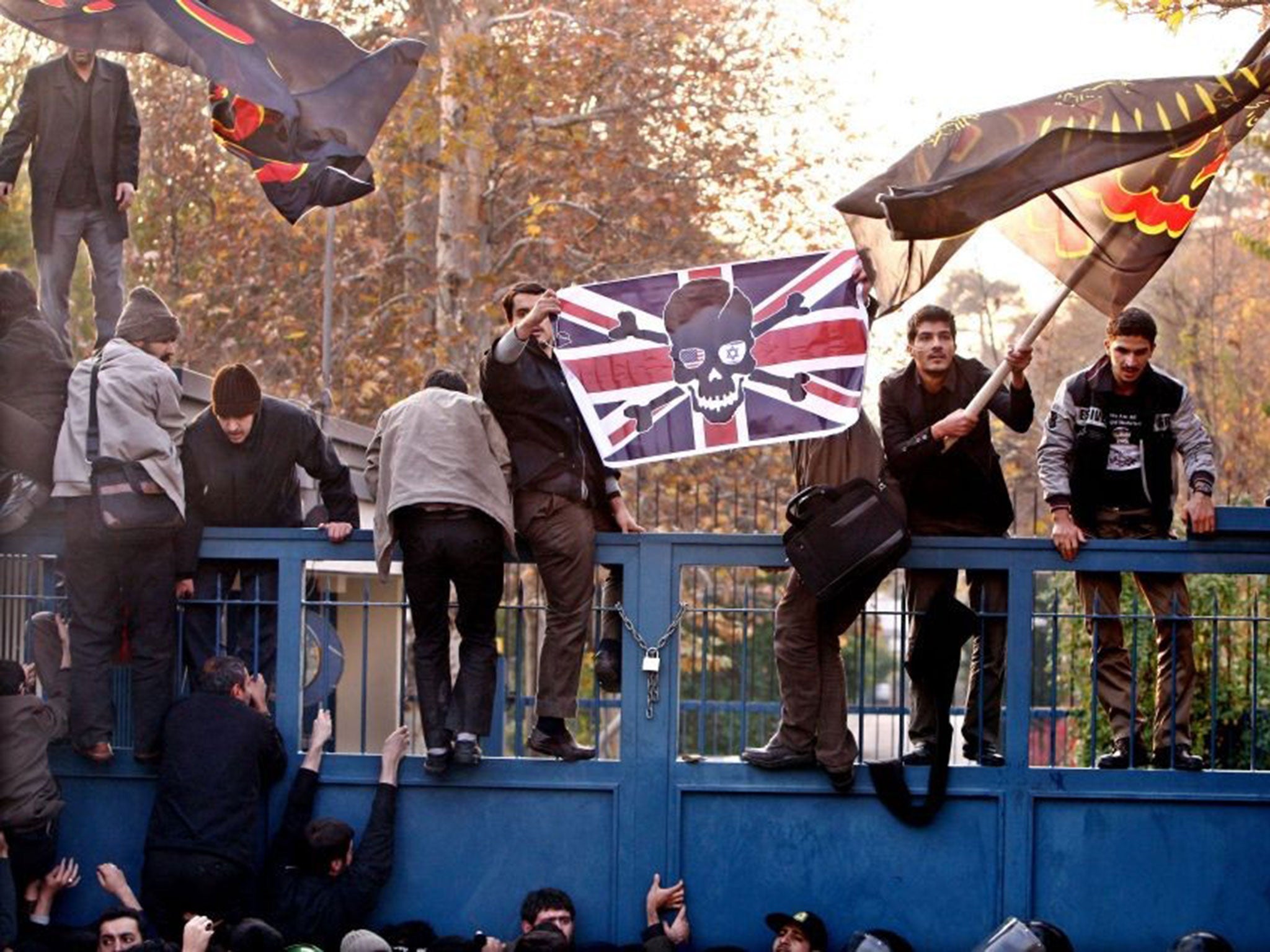Iraq crisis: Isis advances are helping to thaw relations between the West and Iran
Nuclear talks resume in Vienna, the US explores common interest, and Britain is to reopen embassy in Tehran

The British embassy in Iran is to reopen as part of moves to rebuild links with Tehran in response to the war raging in neighbouring Iraq.
William Hague, the Foreign Secretary, said the “circumstances are right” to re-establish the diplomatic mission in the Iranian capital. It was closed in November 2011 after protesters stormed the building and ransacked offices.
Britain and other western nations have been attempting to improve relations with the Tehran government in recent months.
There is a now a significant shared common interest between the countries as Sunni extremists under the Isis banner advance across northern Iraq, putting the survival of Iraq’s Shia-dominated government in jeopardy. More than 90 per cent of Iranians follow the Shia branch of Islam.
In a statement this morning, Mr Hague said: “Our two primary concerns when considering whether to reopen our embassy in Tehran have been assurance that our staff would be safe and secure, and confidence they would be able to carry out their functions without hindrance.
“There has never been any doubt in my mind that we should have an embassy in Tehran if the circumstances allowed.
“Iran is an important country in a volatile region and maintaining embassies around the world, even under difficult conditions, is a central pillar of the UK's global diplomatic approach.”
He did not give a precise date for the embassy to reopen, saying there would be a “small initial presence” as soon as “practical arrangements have been made”.
The initiative comes after Mr Hague held talks at the weekend with his Iranian counterpart, Mohammad Javad Zarif.
In a statement to the Commons yesterday, Mr Hague said Britain shared “important common interests with Iran”, including stability in Iraq and Afghanistan.
He made clear Britain would not join military action against Isis fighters, but said the United States was “looking at all options”. He announced that Britain had dispatched a team of counter-terrorism experts to help the Iraqi forces.
Meanwhile, Washington confirmed that senior diplomats have held informal contacts with Iranian counterparts on the fringes of long-arranged nuclear talks in Vienna to explore common interests in trying to stave off the rebel onslaught. But US officials did not envisage any concrete co-ordination of military action by US and Iranian forces.
President Barack Obama has edged closer to a limited intervention in Iraq after convening his full national security team late on Monday. He also notified Congress that he was sending 275 military personnel to Iraq to protect US assets including its Baghdad embassy. The US has said it will not help repel the advancing rebels until Iraq’s Prime Minister, Nouri al-Maliki, reaches out to Kurd and Sunni elements and begins moving towards a more inclusive government.
Today came news that Mr Malaki had fired four of his top security officers a week after the fall of the north-western city of Mosul. Officers, including Lt-Gen Mehdi Sabah Gharawi, the top commander for Nineveh province, were dismissed because they “failed to fulfill their professional and military duties”, according to state television.
However, planning for possible action was clearly in high gear. “He has asked his national security team to prepare a range of other options that could help support Iraqi security forces,” Caitlin Hayden, a spokeswoman for the National Security Council, said after the meeting.
Of the contingent ordered to Iraq to protect the embassy and other US properties, about 170 had already arrived. Meanwhile, an additional 100 personnel were on standby in the region, possibly in Kuwait, should a full evacuation of US diplomatic staff become necessary.
While there will be no deployment of ground troops to Iraq, there were reports that President Obama was considering sending a 100-strong group of special forces with the limited mission of assisting and training Iraqi commanders as they try to repel the rebel advances.
The Associated Press cited three sources indicating that the special forces could be sent in but specifically would not be available for actual combat.
Mr Hague’s announcement came before David Cameron said that British citizens and other European nationals fighting alongside Islamist insurgents in Iraq and Syria posed the biggest current threat to Britain’s national security.
“No one should be in any doubt that what we see in Syria and now in Iraq in terms of Isis is the most serious threat to Britain’s security that there is today,” Mr Cameron told a joint news conference with the Chinese Premier Li Keqiang. “The number of foreign fighters in that area, the number of foreign fighters including those from the UK who could try to return to the UK, is a real threat to our country,” he said.
Iran re-embarked on talks on its nuclear programme with the United States, Russia, China, the UK, France and Germany in Vienna.
A spokesman for Catherine Ashton, the European Commission foreign affairs representative, who is hosting the meeting, said talks focused on elements of text that could be part of the final agreement.
“We are certainly very realistic,” he told reporters. “And we hope the Iranian side is as well … I think things are moving forward.”
Join our commenting forum
Join thought-provoking conversations, follow other Independent readers and see their replies
Comments